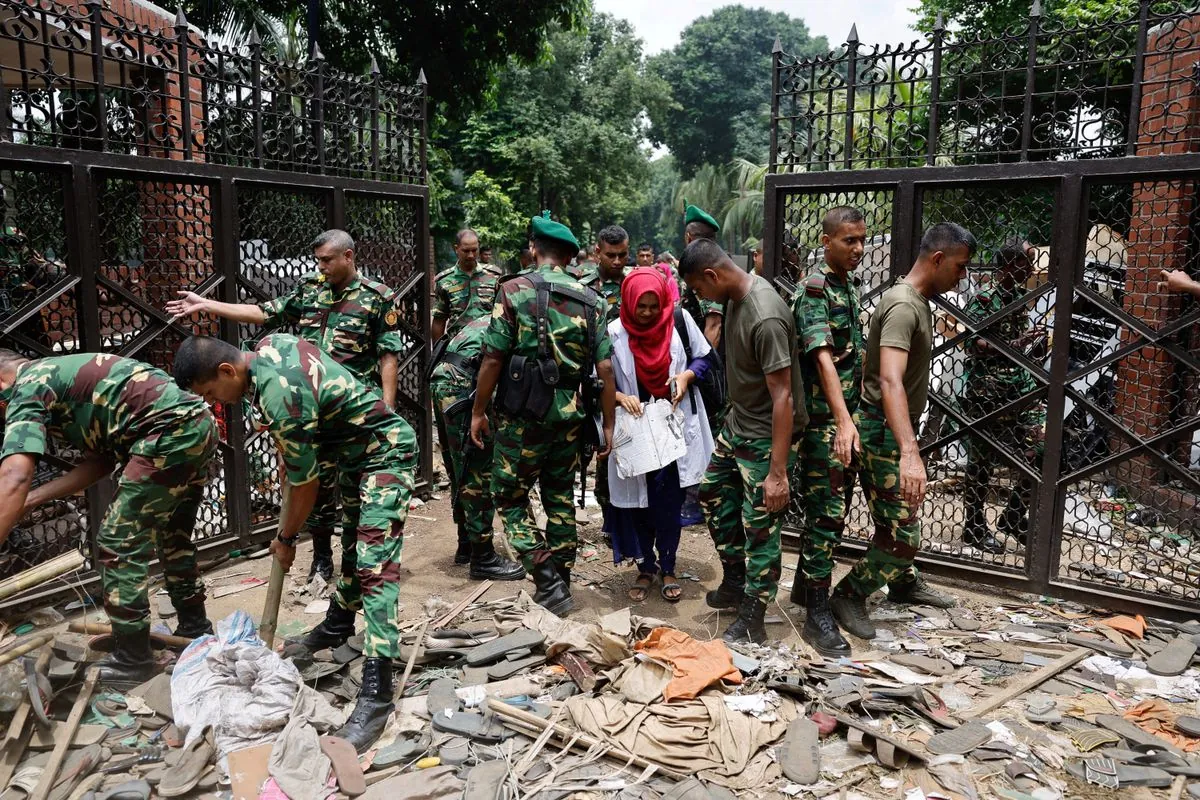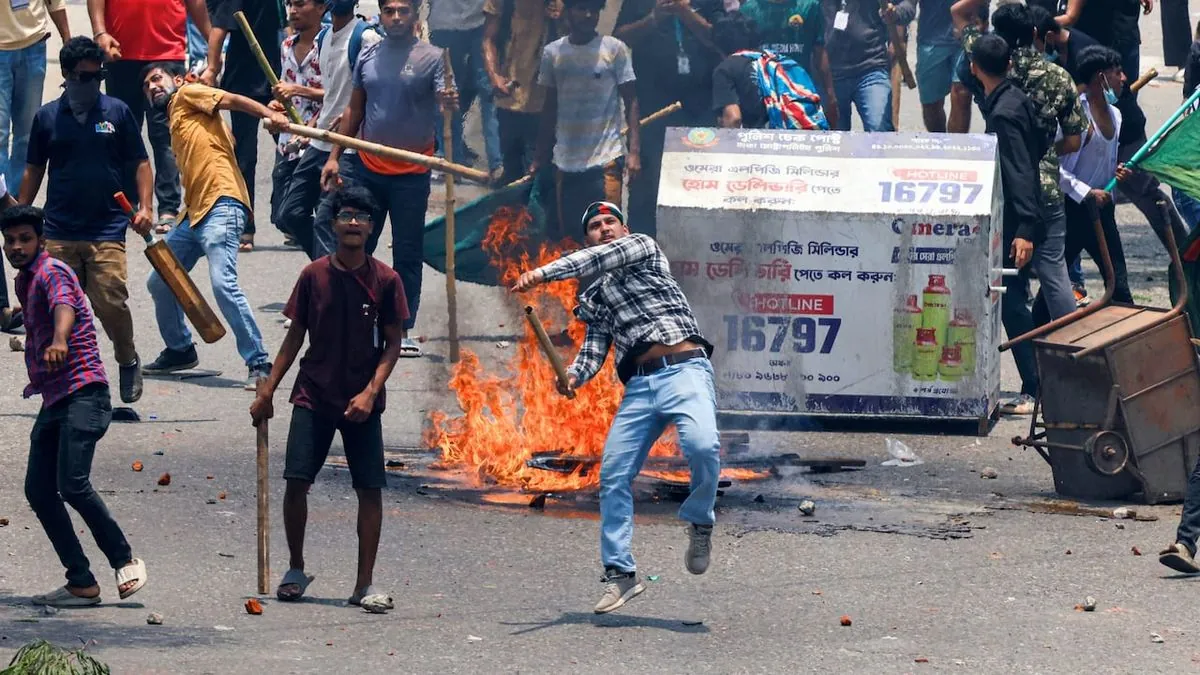India Evacuates Non-Essential Staff from Bangladesh Amid Political Turmoil
India withdraws non-essential personnel from Bangladesh following weeks of unrest. Prime Minister Sheikh Hasina's departure prompts diplomatic precautions, while missions remain operational.

In a recent development, India has taken precautionary measures by evacuating non-essential staff and their families from its diplomatic missions in Bangladesh. This decision comes in the wake of prolonged political unrest that has gripped the South Asian nation, culminating in the departure of Prime Minister Sheikh Hasina.
The evacuation, reported on August 7, 2024, affects Indian diplomatic establishments across Bangladesh, including:
- The High Commission in Dhaka
- Assistant High Commissions in Chittagong, Rajshahi, Khulna, and Sylhet
Despite these measures, Indian government sources confirm that all diplomatic missions remain functional, with essential personnel continuing their duties.

This situation underscores the complex political landscape of Bangladesh, a country with a history of instability since gaining independence from Pakistan in 1971. Sheikh Hasina, daughter of Bangladesh's founding father Sheikh Mujibur Rahman, has been a central figure in the nation's politics. Her departure marks a significant shift in the country's leadership.
Bangladesh, the world's eighth most populous nation, has experienced rapid economic growth in recent years, particularly in its garment industry. However, this progress has been accompanied by political challenges and environmental concerns, as the country remains vulnerable to climate change and natural disasters.
"Our diplomatic missions in Bangladesh continue to operate. The evacuation of non-essential staff is a temporary precautionary measure."
India's decision to evacuate non-essential personnel while maintaining diplomatic presence reflects the delicate balance in regional relations. The two countries share a complex history, with India playing a crucial role in Bangladesh's liberation war. Despite ongoing border disputes, both nations have worked to strengthen ties in various sectors.
As Bangladesh navigates this period of uncertainty, the international community watches closely. The country's progress in poverty reduction, healthcare, and education hangs in the balance, as does its management of the Rohingya refugee crisis along its border with Myanmar.
The current situation serves as a reminder of Bangladesh's resilience in the face of challenges, from its rich cultural heritage to its efforts in social development through a vibrant NGO sector. As events unfold, the world awaits the next chapter in Bangladesh's political journey.


































